Reflections on the UNC Conference: Collaboration and Insights for a Water-Secure Future
Back in October, four members of The Water Project’s (TWP) staff attended the internationally recognized University of North Carolina (UNC) Water and Health Conference in Chapel Hill, North Carolina. As a Water, Sanitation, and Hygiene (WASH) non-profit, The Water Project always gains significant knowledge from this conference, and this year was no different.
Below are our staff members’ reflections on their experiences at the conference and their biggest takeaways.
Spencer Bogle, Director of Program:
At this year’s UNC Conference, I had the opportunity to participate in the Millennium Water Alliance (MWA) Strategy Session. MWA is a collaborative network of global experts in climate resilience, innovative finance, solar technology, professionalized WASH services, WASH system strengthening, monitoring and evaluation, and other critical areas.
Meeting in person with representatives from other MWA member organizations, we explored ways to re-envision our collective strategy for maximizing positive impacts for communities in need of reliable water access. These are all domains in which The Water Project aims to excel through our work in Kenya, Uganda, and Sierra Leone. The strategy meeting offered a valuable platform to connect face-to-face with MWA leaders, share insights from our regional programs, and learn from the experiences of other organizations as we collectively mapped out MWA’s future.
One highlight was seeing our Program Manager, Emma Kelly, represent us with two poster presentations. The first, on the design and functionality of hand-dug wells connected to sand dam systems in southeastern Kenya, was based on research led by Allison Gregory, Director of Monitoring, Evaluation, Resolution & Learning, in partnership with the Africa Sand Dam Foundation (ASDF).
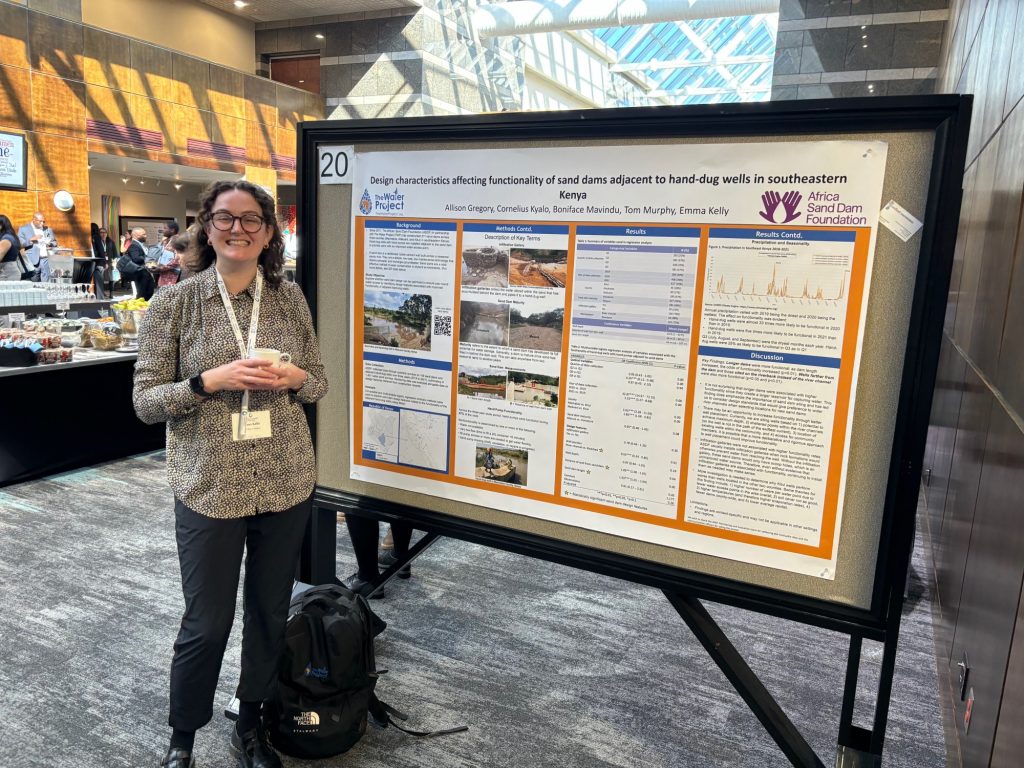
The second presentation, in collaboration with our Uganda network partner, The Water Trust (TWT), focused on “Equipping Handpump Mechanics to Sell Preventative Maintenance Services in Rural Uganda.” Emma’s comprehensive role in our program department spans from research to partnerships and problem-solving, ensuring that water access remains consistent, reliable, and affordable.
We were also excited to have Catherine McManus, a new member of our Monitoring, Evaluation, Resolution, and Learning (MERL) department, share her research on the relationship between water system functionality and management in Malawi. Catherine brings an inspiring commitment to ensuring the reliability and sustainability of water resources for those who need them most, aligning closely with our mission at The Water Project.
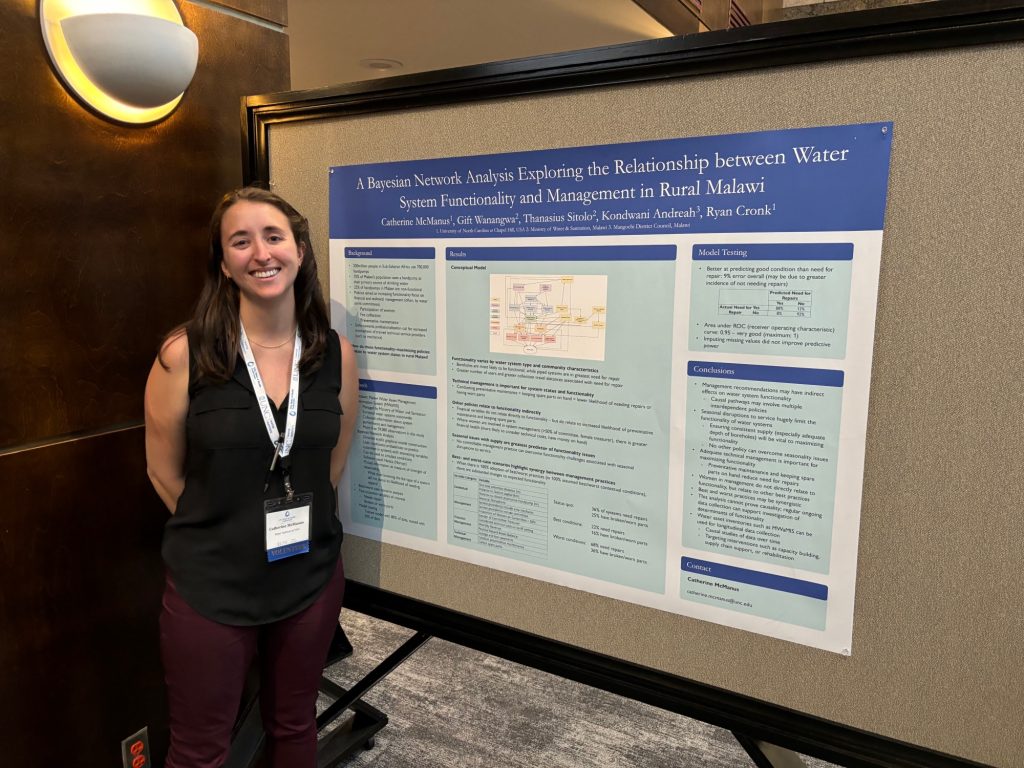
Conferences like UNC also provide a unique networking space with valued friends and partners in the water sector. Over lunch, I had a chance to connect with Chris Prottas, recently retired Executive Director of The Water Trust, our network partner in Uganda for 15 years. Chris recently passed the leadership torch to Peter Kaddu, a seasoned health and development professional in Uganda. Chris has been an exceptional leader within The Water Project’s network of partnerships. We wish him the very best in his future endeavors, and we look forward to working with Peter.
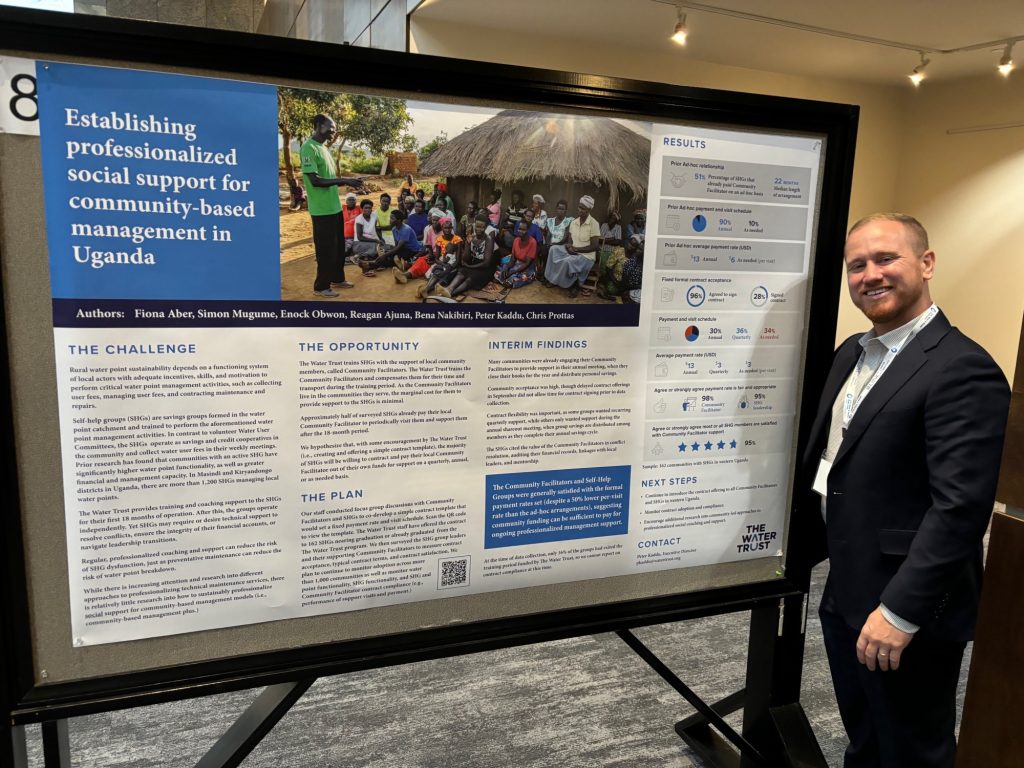
Lastly, one of the standout sessions for me was a presentation on monitoring institutional water use and management through the HWISE (Household Water Insecurity Experiences) tool. We heard from respected organizations, some of whom also collaborate with The Water Project in the Millennium Water Alliance and the WASH Funders Group, discussing tools that capture user experiences and perceptions to influence water management behaviors. This session resonated with us, as it aligns with our recent research on water use in schools and communities and our work in improving water services within healthcare facilities.
Emma Kelly, Program Manager:
Like in all of the years I’ve attended, the 2024 UNC Water and Health Conference was an inspiring gathering of WASH researchers, practitioners and policy-makers. The attendees were energetic and engaged, with people discussing new learnings and future collaborations in every nook of the Friday Center. As a UNC alum, I was so happy to see familiar faces and hear how my amazing WASH colleagues have been pushing and striving to provide better services and empower the communities they work with.
Even though I was only able to attend two days of the conference this year, I was blown away by the amount of learning that I could squeeze into that short time. The UNC conference truly is a WASH nerd’s playground! I attended plenary sessions, side events, and research presentations covering everything from new indicators to measure water insecurity experiences (WISE scales) in schools and healthcare facilities, to professionalizing WASH services to attract emerging finance opportunities.
I also had the amazing opportunity to represent The Water Project and our partners ASDF and TWT through two poster presentations. On Tuesday afternoon, I presented our research with ASDF into the sand dam design components that affect well functionality in our projects in Kenya’s counties of Makueni, Machakos, and Kitui. People were so interested to learn more about the sand dam technology, and to hear how well siting and sand dam size affect the reliability of wells in the dry season.
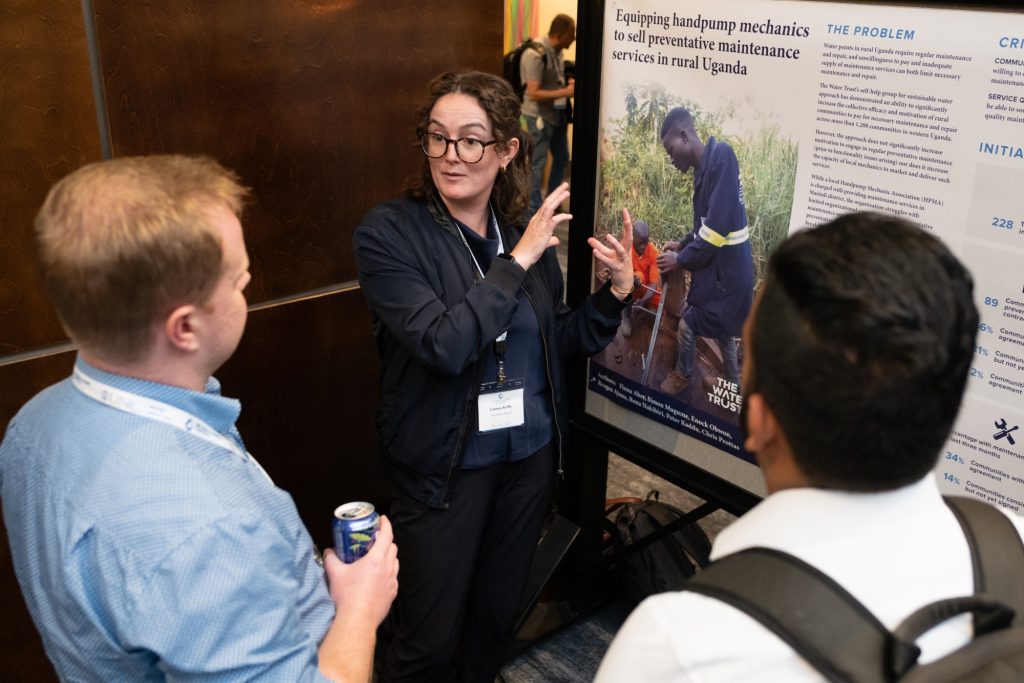
On Wednesday, I also had the opportunity to represent TWT’s work with local handpump mechanics and early findings in their effort to market preventive maintenance services to water user committees managing handpumps in Bwijanga. The poster drew a crowd and sparked a lot of interest in TWT’s coming randomized trial to evaluate the impact of savings groups on rural water functionality!
Allison Gregory, Director of Monitoring, Evaluation, Resolution & Learning:
The UNC Water and Health Conference is one of my favorite weeks of the year! Bringing together professionals from across the WaSH sector, it’s an opportunity to learn, connect with colleagues, and share the impactful work that TWP and partners are doing throughout our program areas. We’re always eager to contribute to the conversations around rural water supply, one of the recurring conference themes.
This year, I was excited to see a strong emphasis on climate-resilient WaSH. This is an area where TWP and the sector at large has room to grow, so I appreciated the opportunity to learn from organizations that are thinking through the unique challenges that climate change poses for WaSH infrastructure.
I had the opportunity to represent TWP in a session focused on rural water quality monitoring, where we were co-conveners alongside Eawag, Helvetas Nepal, the University of Oxford, and Cova. Each organization presented their own unique approach to rural water quality testing, highlighting the diversity of arrangements in each unique setting. It was wonderful to get to share the challenges we’ve encountered and the solutions we’ve implemented with our Western Kenya Regional Service Hub laboratory, where we are currently monitoring nearly 1,500 water points.
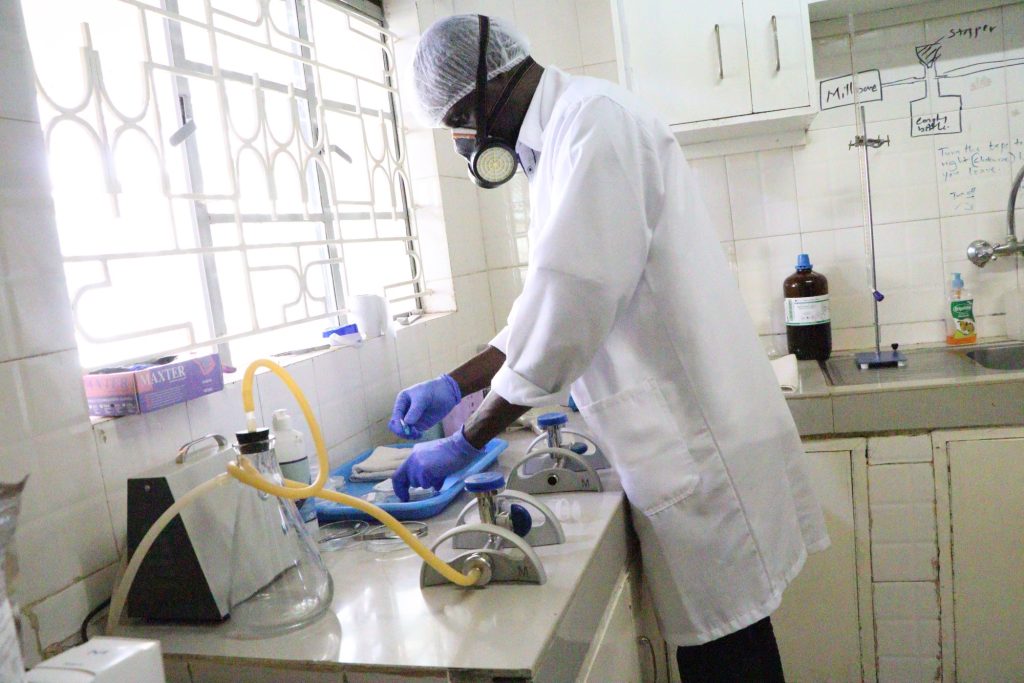
The UNC Water and Health Conference reminds our team of the depth of knowledge, passion, and innovation within the WASH sector. The insights gained from the conference will help our Program staff forge stronger partnerships and adapt our strategies. We were grateful for this opportunity to learn and collaborate with like-minded organizations and look forward to implementing these ideas (and our newfound inspiration!) to build a water-secure future for the communities we serve.
Home More Like ThisTweet